The 1980s were an era of musical explorations spawning a new sound heavily driven by synthesizers. With strong roots in the European scene, an array of uniquely inventive musicians took over popular music, helping shape the era with hit songs that still resonate three decades later. Among this interesting time in music history one of the UK’s biggest stars was The Thompson Twins. Releasing their debut album, A Product of … (Participation), in 1981, the trio broke into international fame with their 1984 album Into the Gap with songs like “Doctor, Doctor” and mega hit “Hold Me Now.” Over two decades after their break-up in 1993, the band’s legacy lives on with lead member Tom Bailey who continues his musical adventure in a list of interesting projects while still giving dedicated followers their fix of all of Thompson Twins hits. Recently we sat down with Tom Bailey for a introspective look into his creative world, the progression of synthesizers in music, the height of Thompson Twins success, and much more.
CrypticRock.com – You formed the Thompson Twins over three decades ago and the group really flourished in the 1980s with a series of chart-topping hits that are still loved by fans of all ages today. Tell us a little bit about that magical time period?
Tom Bailey – Well, it was fabulous. It was a real party and we worked hard to get that. It was an experimental plan that we put into action to see if the Thompson Twins could be a successful group. We were satisfying our creative challenges for doing it in a way that would capture the bigger audience. It is not something we did naturally; it was an experiment in success if you know what I mean. We gave ourselves an image and said within a year we wanted to achieve that and it happened. It just goes to show that we were enjoying ourselves rather aimlessly beforehand, but when we had a focus and a target, we really worked hard at it and it all came together.

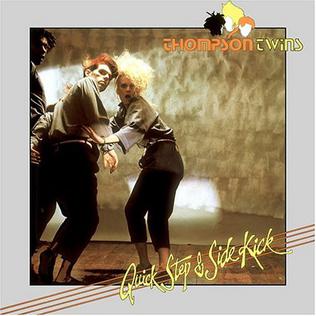
CrypticRock.com – Yes, it certainly did. Thompson Twins’ fourth studio album, Into The Gap, celebrated its 30th anniversary in 2014. Clearly a turning point in the group’s career with the gigantic hit “Hold Me Now” and “Doctor Doctor.” What was it like for you when the band began to soar with success with that record?
Tom Bailey – Well obviously you are right that was a key moment in really establishing ourselves. The thing is we had be working up to that point. Although we did not really know what was coming, we were aiming for it. My memory is this, we actually recorded “Hold Me Now” before the rest of Into the Gap. We were in the studio in the Bahamas cutting tracks for it and “Hold Me Now” was already on the charts so we were pretty excited. We were very isolated at this point, but we were getting messages saying that it had gone on to the Top 100 and then the Top 40 and then the Top 20, which really set the bar very high when you are accomplishing a project like that. We knew we had to edit the album so it was very fun but high pressure.
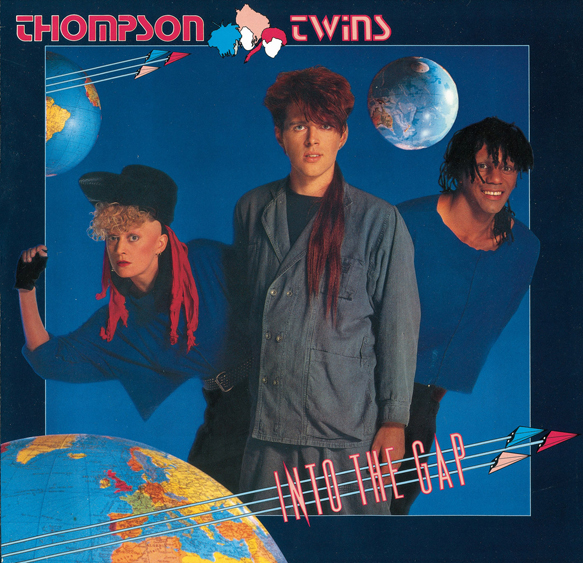
CrypticRock.com – One can imagine it was really amazing to have watched that happen and see it keep climbing the charts and setting your goals higher.
Tom Bailey – Of course, people were very excited in the record company and the managers were screaming on the phone saying, “You do not believe what is happening here.” We were on a Caribbean island making music, but we got the message.
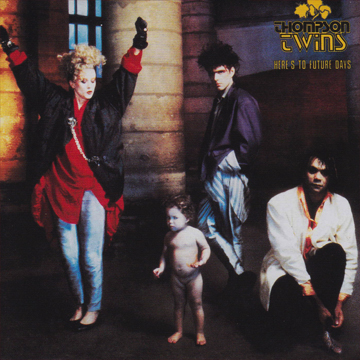
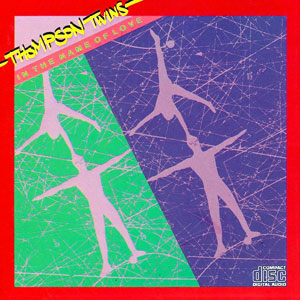
CrypticRock.com – Wow, that has to be extremely exciting to see happen as an artist. The group did in fact come to an end back in 1993 but you remained active with Babble for years after. What inevitably caused yourself and the other members to decided to put the group to rest?
Tom Bailey – I think a few things, for one, our lifestyles changed. We moved from living in London and other big cities to living in the jungle in New Zealand. So that was one thing. We had kids to raise. We had other musical projects that had been denied a fair share of our attention. I think also, we had given ourselves so fully to the Thompson Twins that we realized that we could not carry on and have any kind of real meaningful life. We had to do other things and we felt we had earned that period of rest. We had done what we had set out to achieve and more so it was okay to chill out.
CrypticRock.com – That is understandable. Lifestyles change, being part of a traveling group has to be wearing.
Tom Bailey – I think I am rediscovering the fact that you have to put a lot of work into the health and wealthfare of everyone involved. When you are young and crazy living out the fantasy of a party animal you do not really think about those things, but you still suffer the effects and maybe recover more easily. Now, we can have all learned we can have great time touring, but we also have to take care of ourselves as well.
CrypticRock.com – Of course, that comes with experience. Interesting enough many groups from the 1980s era did reunite in the 2000s, but Thompson Twins did not. Was there ever talk of a possible reunion at some point?
Tom Bailey – There was always talk but the conversations between Joe, Alannah, and myself never got very far. I think that is probably because when Alannah left the Thompson Twins and Babble, she never made music again, she was not particularly interested in that as her creative vehicle. She has moved into other creative things, as did Joe. So they were not hankering after doing that again in any way or making music in any way. Whereas that is all I have ever done really is to make music in various bands ever since.
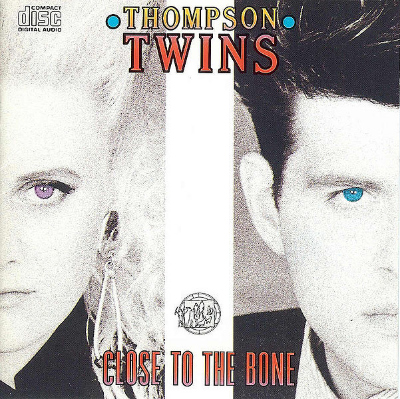

CrypticRock.com – Right, as you said you have remained active in music ever since. You worked with International Observer and Bailey-Salgado Project which are both unique and different work than you did in Thompson Twins. Obviously progress as a musician is essential. With that said what inspired these projects?
Tom Bailey – Well, when I was on a Thompson Twins tour, I had three intermittent but seemingly permanent projects on the go. One is actually International Observer, which just released its sixth album Touched in 2014. It is Electronic Dub album which is mostly instrumental and rooted in my admiration of the great Jamaican producers from the 1970s. The BSP is really just a collaboration with an astronomer who makes films about the cosmos in the night sky and he works independently also as part of the Adler Planetarium in Chicago. We started working together a few years ago to make the films with music, which are entertaining but educate and create an awareness about the amazing phenomenon of the universe. We make films and we perform them live so it is a curious thing. It is partly a film, partly a concert, and partly a kind of lecture with questions and answers. The third one is the Holy Water band, which is a fusion of East and West. It is myself and a percussionist from New Zealand. We met up with master musicians from Northern India to write and collaborate on our second album, which just released and that is an absolute pleasure. A lot of devotion and satisfaction for me, I really enjoyed it.
CrypticRock.com – It sounds extremely interesting. Those are very different projects and must be exciting to have so much variety.
Tom Bailey- They are kind of wildly different, but in a weird way they all inform each other. The Indian project involves Dub aspects. Even The Thompson Twins Indian flavors here and there, and so on and so forth.
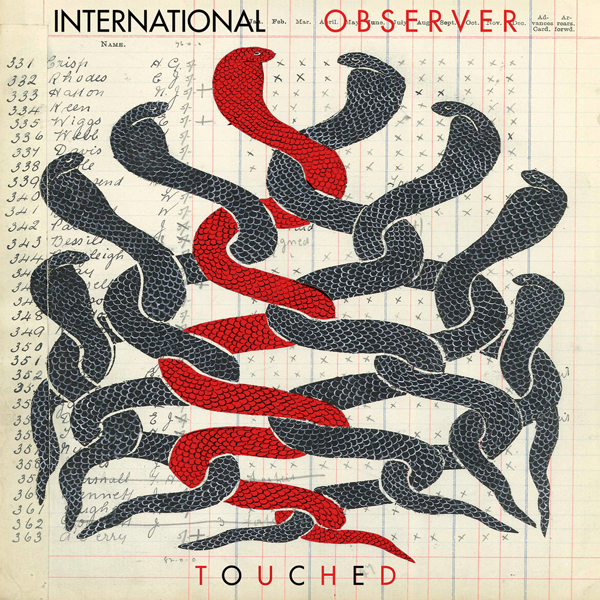
CrypticRock.com – It is quite exciting that you have these various outlets to express different musical styles. It is clear synthesizers dominated the 1980s popular music scene, producing a lot of unique music in the process. Music has seen a lot changes since then, but the synth elements still remain even in Pop and some Metal music. What is your opinion on the usage of synthesizer sounds in modern music?
Tom Bailey – Well they have become more of the acceptable tools or weapons in the arsenal of self- destruction that we built for them. Back in the day, synthesizers were regarded with suspicion. There was some kind of idea that they were not a real instrument in the sense that maybe a guitar was. Guitars were symbolic and also symptomatic of good old Rock and Roll. So we took the synthesizers partly as an alternative to all of that. We wanted to make a different kind of music so we chose a different instrument. We had to face, especially in the States, the criticism that we were just pressing buttons and getting away with murder. Of course there was always a generation of people latching on to that saying, “Yeah this is a new sound, a new music that represents a new wave of infinite possibilities.” That is the thing that, even ten years before, attracted me to the synthesizer. I just thought, this is a new way of making music that no one has ever heard before, not just more of the same. So, I just waited till I could afford one and that took me about ten years (laughs). I earned a little bit more money and synthesizers got cheaper and those two points met and I bought one immediately and started making records with it.
CrypticRock.com – Yes the synthesizer has definitely become accepted as a musical instrument next to a guitar in popular music.
Tom Bailey – Yes, maybe when synthesizers were first invented people may have thought of them as a science gimmick that made weird noises. Of course people felt the same when the piano was invented, and look what an influence that had. Now we look at synthesizers as influence every form of music from abstract experiment forms to the mainstream. Another thing is, there is still an area of development. It turned into an amazing thing.
CrypticRock.com – Absolutely. Speaking of modern music, another big thing that has changed is the way people obtain their music and also how they listen to music. Some may say it is better now while others will disagree. Do you feel it is more difficult nowadays for a musician to survive than in the past?
Tom Bailey – Well, I will not complain about my situation because obviously I had my good luck in the past. I think it is really tough for bands starting out to get beyond that circuit of playing locally and developing a following. It seems to me that Independent labels are struggling. Major labels are not interested in anything unless they see the potential to make big bucks and in order to do that they want to manipulate the situation. The other thing is that people listen to music essentially by stealing it. They do not pay artists for what they hear anymore. The so-called legal ways of accessing music from the internet basically undervalue the musicians so much that it is just deeply dysfunctional. It is actually going to kill off the music business more than any other threat. In the past, we used to say that with cassettes and home taping and then file sharing etc. This idea that you can stream endless performances of music and just a few cents dribbles back to the musician a eighteen months better is extremely bad. Eventually, they may have to get other jobs to survive because exposure does not put food on their table and that is the reality of life.
CrypticRock.com – Many would agree with you 100% on that, especially musicians. The internet is obviously a wonderful thing allowing people to explore other forms of music, but in the other sense everything has become very fragmented. There are so many outlets and so much going on that is difficult for an artist not to get lost in the shuffle. With that, there is a great possibility their music will just become streamed for free.
Tom Bailey – The other thing as you said there is so much to be exposed to. When I was a teenager there was a maximum of twenty albums released every week, now a days there are almost two thousand a week, there is no way to keep up with what is going on. There is a globalized effect but it is also watered down.
CrypticRock.com – Yes, it’s a very difficult time in music. It is very exciting to see you as part of the Retro Futura tour in 2014. The line-up featured a lot of great artists including Midge Ure, China Crisis, and Howard Jones. How did that tour go?
Tom Bailey – Well we had the most amazing opening night in New York City, great fun was had by all. The audience was so enthusiastic that it made it kind of easy for us to deliver and just have a good time. Three us performed on Live Aid gig back in 1985 which was really the high point of era of New Wave for all of us, and here we are again. Ten months ago, I only had the smallest glimmer of an idea that this was going to happen. It was a very recent decision and I had been concentrating on preparing for it, and once it started I was really excited. For this tour I made the decision to do a greatest hits show and even then, there is not enough time to play all of the big tunes, so I had to narrow it down. The other thing is that I have got a very electronic band, very high tech so no acoustic instruments at all. We tried to be very faithful to the original spirits of the songs in most cases, but we did a couple of different surprising things with the songs.
CrypticRock.com – Well the tour was a great success and fans here in North America really loved it. There certainly was a great mix of artists fans of the genre really wanted to see live again. What are some of your musical influences?
Tom Bailey – I could talk for hours about that (laughs). Some of the things are kind of obvious. I like Pop music but I am a big fan of the underground. Bands like The Observers. The underground music that I love is Jamaican Dub Reggae, the same thing with North Indian music. It is such a big subject, it difficult to say that you understand it altogether, but having worked in it for a long time, I developed a sense of certainty and a real taste for it. Then again I have made music for Science-Fiction films and astronomy. These are all very different kinds of things. Yet, in a way they are all the same. It is about putting sounds, notes, and noises together at various ways at various times to create an effect that is better than doing it any other way.
CrypticRock.com – That is a very interesting taste in music and it shows through in your songs. My last question for you is pertaining to movies. CrypticRock.com covers music and Horror films. If you are a fan of Horror films, what are some of your favorite Horror films?
Tom Bailey – I always thought that Nosferatu The Vampyre (1979) was a classic establishment of the style, so that is the one I would go for.
CrypticRock.com – That is a great choice. Speaking of films, you have been involved in soundtrack music. Obviously, you are interested in Science Fiction, do you have a favorite Science Fiction film?
Tom Bailey – A couple of really obvious ones like 2001: A Space Odyssey (1968) or Blade Runner (1982). Blade Runner of course was really fantastic.
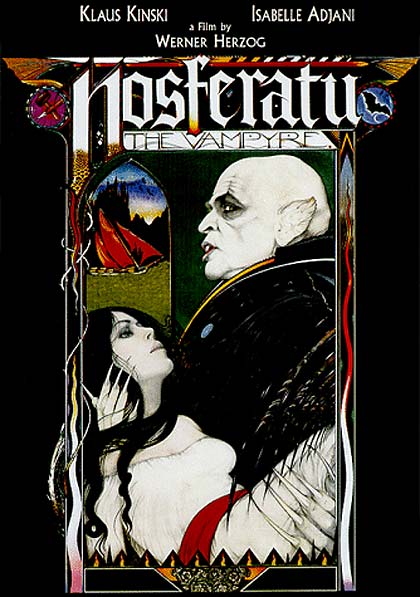

CrypticRock.com – Yes, those are two fantastic films, Both unique in their own way for sure. As someone who has worked in soundtracks, what is your opinion on modern filmmaking?
Tom Bailey – I am not really qualified to pass judgment as a casual observer. let me say this, when I have worked with moviemakers to put soundtracks to the movies, my observation is that the bigger the project, the less interesting it is. If you get to work with a low budget film, then you get to sit with the director and discuss ideas and try out things to see what really works for it. Maybe movies have become too big for their own good and we should get back to the experimental roots of great movie making. Again, I am not an expert to criticize, but that is just my observation for having worked in those situations.



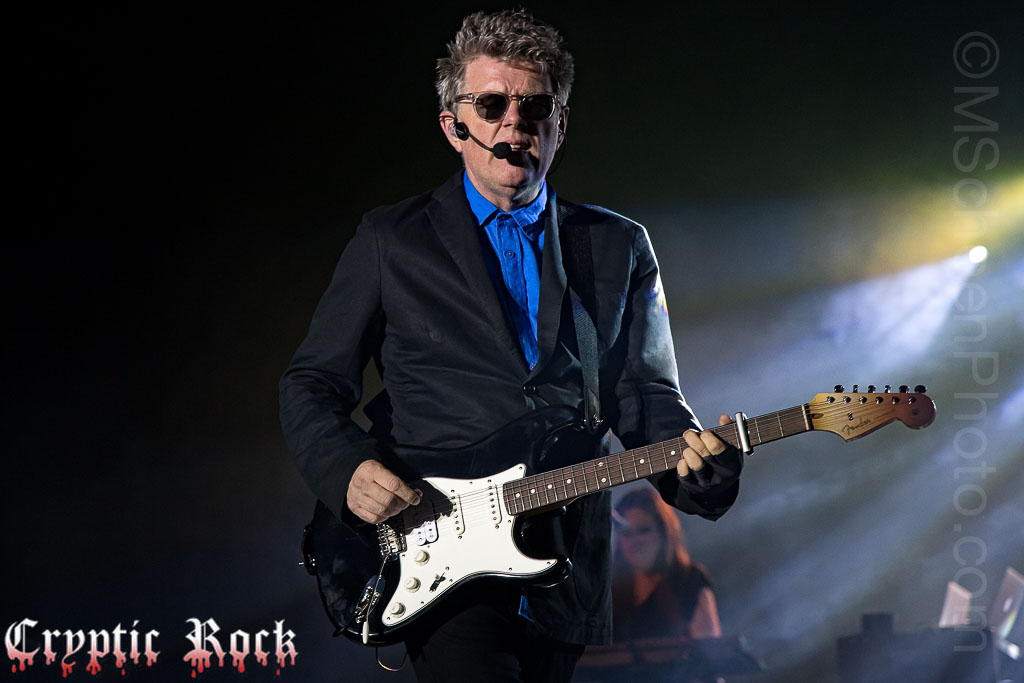
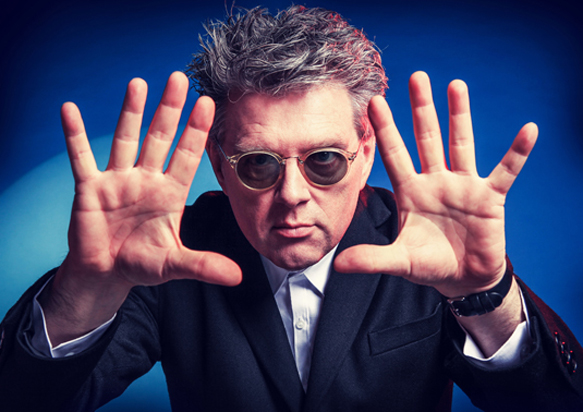
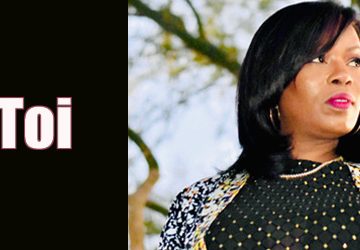
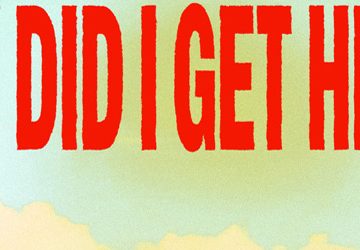


Great read. This interview doesn’t shy from Tom’s roots, his fame with Alannah and Joe, his feelings on a complete trio reunion today, and where he sees himself as a pop star today. Well done.